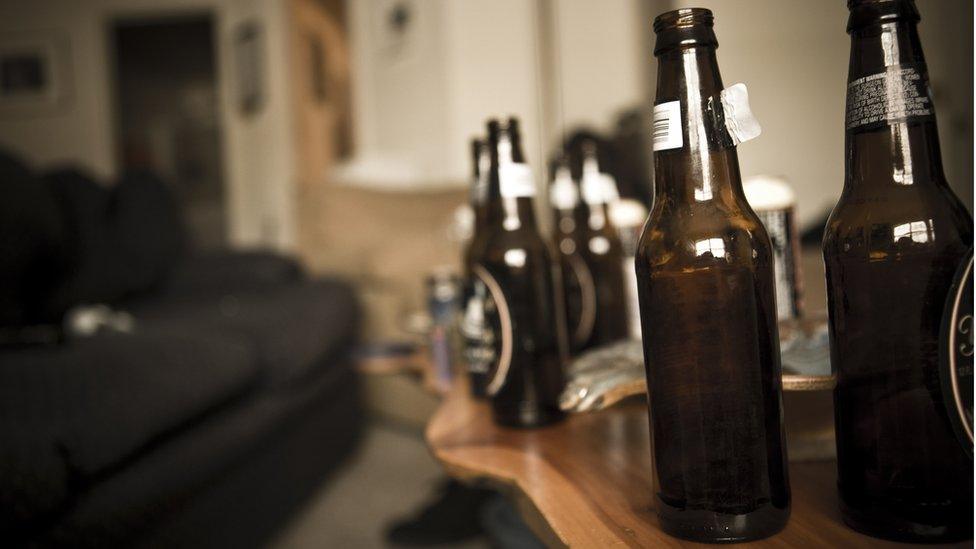Binge-drinking: 'I was stuck in a cycle of self-destruction'
- Published

Sarah Cartin used to binge-drink alcohol in the hope that she would feel liked by others
"Stuck in a cycle of self-destruction" is how Sarah Cartin spent her weekends for a long period of her life.
Her regular, hard sessions of binge-drinking alcohol led to illness, blackouts, danger and misery.
Now the Northern Ireland woman has marked one year of being teetoal with a "soberversary party" with friends in Toronto in Canada, where she lives.
Giving up drink was one of the "bravest things" Sarah has ever done and now she wants others to consider it too.
The start of her story is one that a lot of young people can probably relate to - she began drinking in her teenage years for fun with her friends.
But then it began to spiral out of control, says Sarah, from Bangor in County Down.
"Over the years into my early and late twenties it soon developed into something quite dark," she tells BBC News NI.
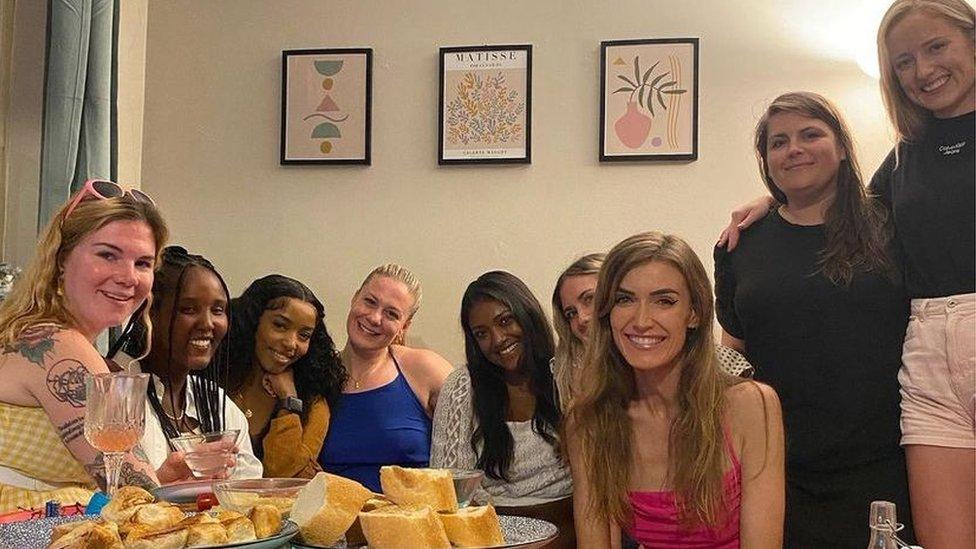
Sarah celebrated her first year without alcohol held with a "soberversary" party with her friends in Toronto
"I started to rely on alcohol to feel liked, you know, to be seen as the fun one, but in reality I was bingeing.
"I wasn't taking care of myself, I made myself ill. There was times where I would black out from drinking, like putting myself in danger, not even knowing where I had been the night before."
'I lost who I was'
Sarah describes using alcohol as a means of forgetting her everyday life and says that for a long time she was constantly hitting the self-destruct button.
"In truth, I think I was absolutely miserable and when I was drinking I used it to escape a reality in which I never really felt that I was good enough," she says.
"I think I lost who I really was during that time."
Sarah is the happiest she has ever been and is now aiming to start sober meet-up events in Toronto to meet other like-minded people who want to have the craic without the booze.
"A year ago I made one of the best decisions I've ever made in my life - rather than drinking to escape a life that I hated, I quit and chose to build a life that I love."

What is the health advice about alcohol?
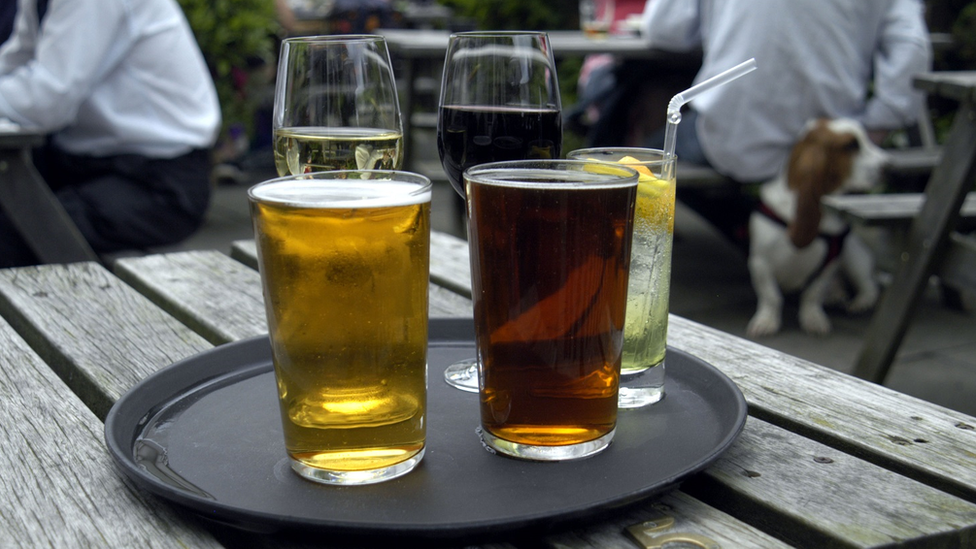
Alcohol misuse has been identified as a significant public health and social issue in Northern Ireland over many years, according to the Department of Health.
Men and women are advised not to drink more than 14 units of alcohol a week on a regular basis, external, spread across three days or more.
That is about six medium (175ml) glasses of wine or six pints of 4% beer.
The NHS says, external that drinking a lot of alcohol on a single occasion, often referred to as binge-drinking, is especially harmful and can increase your risk of:
accidents resulting in injury or death
misjudging risky situations
losing your inhibitions and making decisions you usually would not
becoming a victim or a perpetrator of crime
self-harm
suicide

'I was binge-drinking in a dark headspace'
Caroline McKenna, who is from County Down and splits her working life between Northern Ireland and Australia, regularly shares updates to her thousands of followers on social media about her own sobriety.
The 32-year-old has also recently celebrated being one year sober and is open about her mental health struggles, which she says were made worse by the years in her life when she was binge-drinking.
"I found that my anxiety would be through the roof when I drank," the Newcastle woman tells BBC News NI.
"It was actually on my 31st birthday when I just hit a wall."
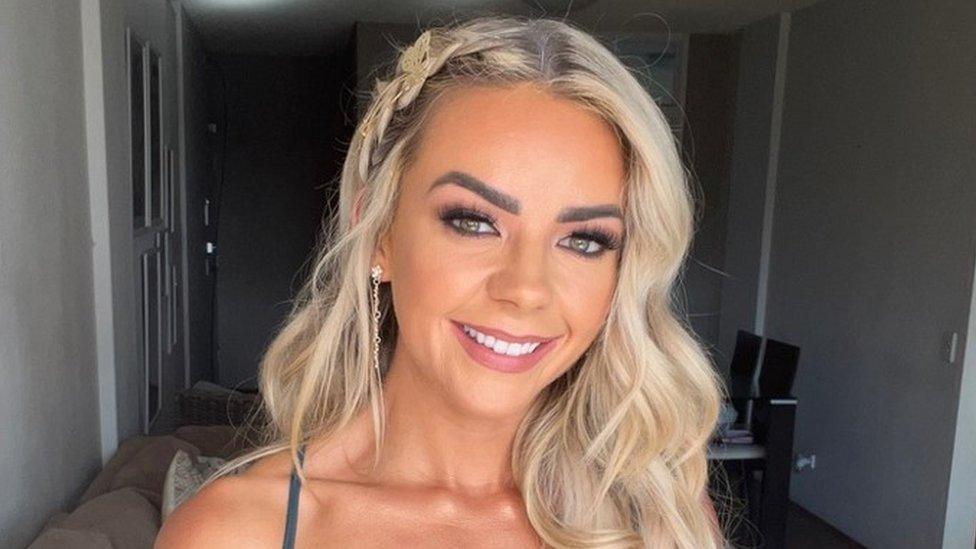
Caroline McKenna has not looked back since become teetotal a year ago
"I was living in Australia at the time and I had a number of things going on in my life - I was feeling really low, I had depression,and it was just after yet another night of heavy drinking for my birthday.
"I was sat there questioning, it's really sad to say this, but whether I wanted to be here anymore and that genuinely scared me."
She decided there and then to remove alcohol from her life.
Caroline says giving up drink completely may not be for everyone but it has completely changed her outlook on life and she cannot see herself living any other way.
"I am all about promoting a positive mental health message and when I was drinking I couldn't do that - if I did I would've just been lying to people and also lying to myself."
'More women becoming sober-curious'
Dr Melissa Kelly is a sobriety coach and the founder of Sober Girls Ireland, a meet-up group for sober and sober-curious women across the island.
She is finding more and more women, particularly younger women, re-evaluating their relationship with alcohol.
Dr Kelly, who has been teetotal for three years, decided to give up alcohol during the Covid-19 pandemic when she was 26.
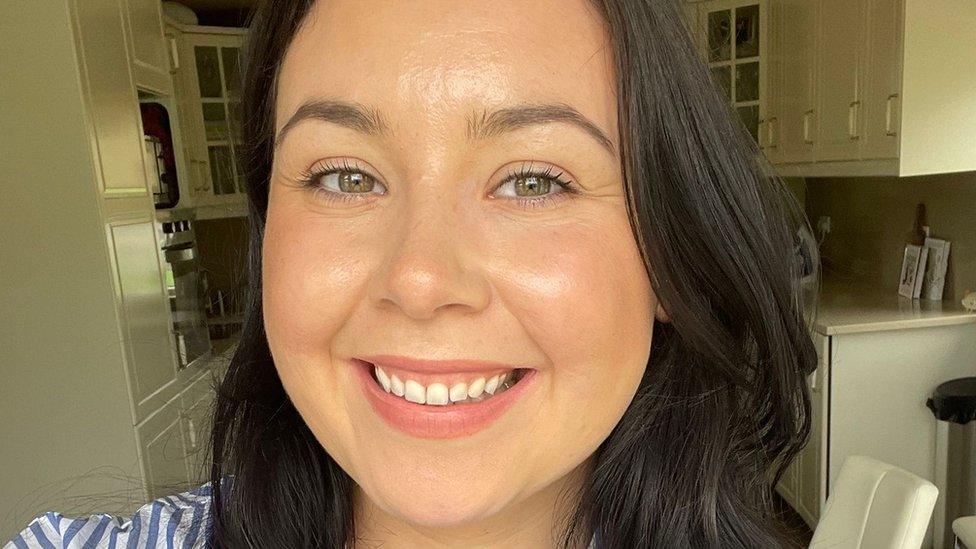
Dr Melissa Kelly says giving up alcohol should be seen an an act of self-care
"I would say when I was drinking it would be classed as binging - I was out with friends on nights out, like many people, drinking to get drunk," she says.
"I did try before to quit drinking and take a 30-day break but it wasn't until the pandemic where I really decided to properly ask: 'Is alcohol serving me for the better or worse?'"
Dr Kelly says many people can be apprehensive about even telling close friends that they are quitting alcohol.
"People can sometimes think that because you're giving up alcohol completely you must have a problem or are an alcoholic, which is simply not always the case.
"There is a greater conversation happening now with alcohol and people quitting drinking should be seen as more of an act of self-care rather than simply someone having to hit rock bottom."

If you, or someone you know, have been affected by any of the issues in this story, help and support is available on the BBC Action Line website.
- Published8 January 2023
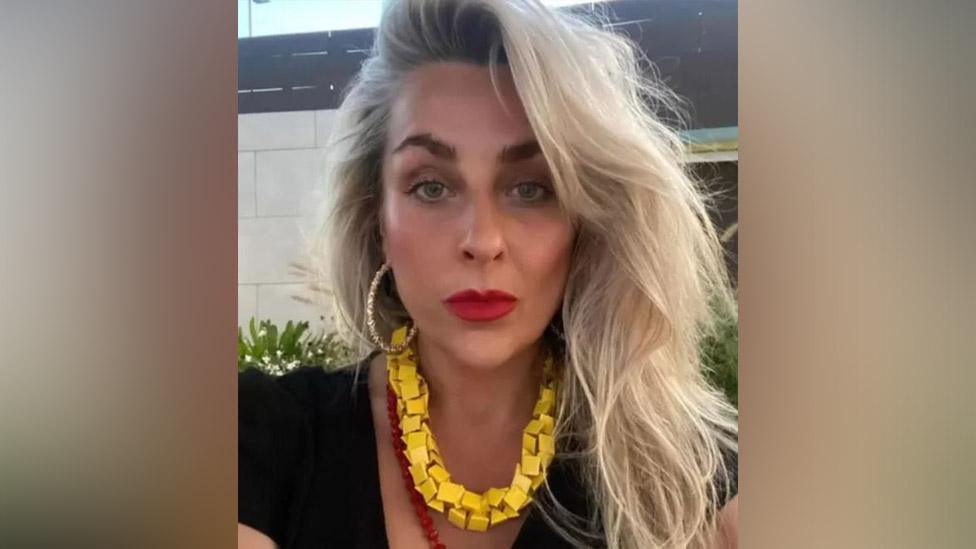
- Published8 December 2022
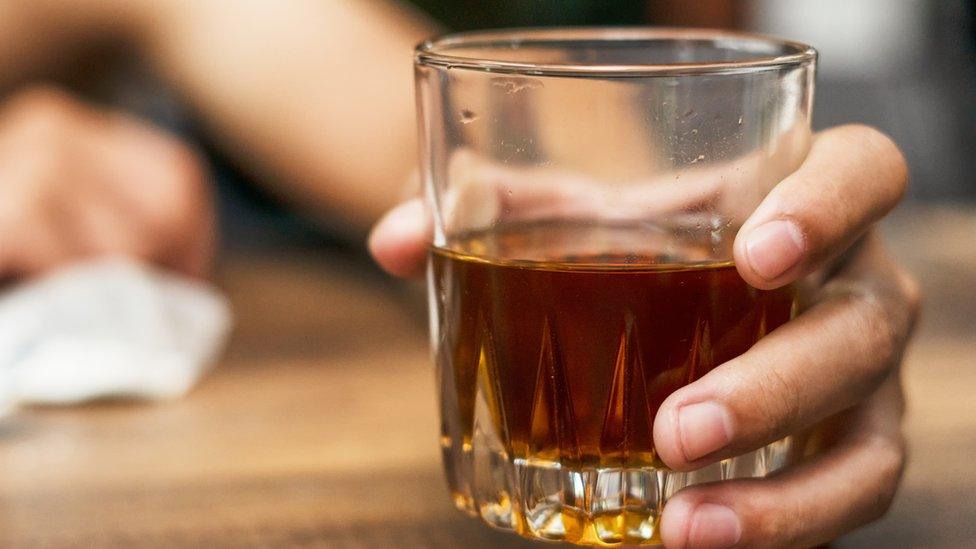
- Published27 January 2022
